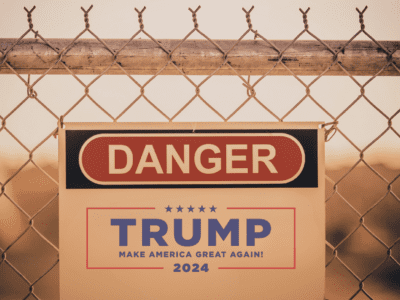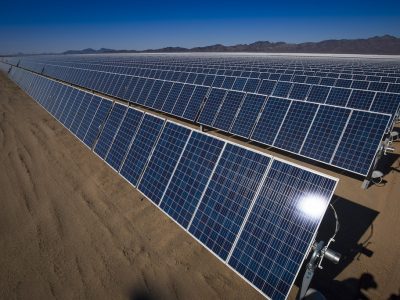Free Trade, Deregulation, and Clean Energy — A Good Mix?
 Some scholars like to suggest that there is a natural regulatory cycle: the perception of market failures leads to regulation, and the perception of regulatory failures leads to deregulation. While the 1990s were dominated by free trade agreements and economic deregulation, many political observers see greater acceptance of regulation now, in light of investor malfeasance and our recent recession.
Some scholars like to suggest that there is a natural regulatory cycle: the perception of market failures leads to regulation, and the perception of regulatory failures leads to deregulation. While the 1990s were dominated by free trade agreements and economic deregulation, many political observers see greater acceptance of regulation now, in light of investor malfeasance and our recent recession.
It is probably fair to say that the anti-regulatory fervor of the ‘90s predated the current broad concern about the challenges of climate change. From an environmental perspective, however, are free markets more part of the problem, or part of the solution?
When pushing for electricity deregulation, many argued that competition on the generation side would allow renewable energy providers to grab a bigger market share, and that competition for retail service would allow consumers to vote with their pocketbooks and choose greener power. However, the growth of renewable power has been driven by government mandates, not consumer choice.
And what about those free trade agreements? While shipping raw materials to China to be returned to the U.S. as packaged goods may promote economic efficiency, the trade-offs are poor from a carbon emissions standpoint.
The verdict may be less clear, however, when it comes to encouraging the development of clean energy technologies. As E&E Daily reports, many experts have told a U.S. House Energy and Commerce subcommittee that tariffs and other trade restrictions would harm the nation’s ability to meet its renewable energy objectives.
Production of many important new energy technologies has moved abroad, attracted by generous funding for renewable energy. As a result, buying renewable in the short-to-medium term requires importing expensive goods. E&E Daily quotes University of Virginia business professor Andrea Larson as saying, “I tell my MBA students that given the pace of innovation in those countries around clean commerce goals, the U.S. will be buying most of its clean technology solutions from Indian and Chinese companies in 10 years.” The suggestion is that if the U.S. slapped fees on such imports or imposed other restrictions, it would only be shooting itself in the foot – adding cost, and making it harder to meet renewable energy goals.
Others added that the way to bring production back to the U.S. is to stimulate innovation through domestic renewable energy programs and government-funded research and development. Lisa Jacobson, President of the Business Council for Sustainable Energy, said, “Establishment of strong domestic markets will build the foundation for manufacturing and exports. Sending the right signals at home through the adoption of domestic investment and manufacturing incentives, coupled with strong, coordinated and long-term policy commitments to clean energy sectors is critical.”
Current Federal programs appear to be providing investment and manufacturing incentives. Congress could show the needed commitment by passing a strong national renewable energy mandate.
Reader Comments
2 Replies to “Free Trade, Deregulation, and Clean Energy — A Good Mix?”
Comments are closed.







I don’t think there’s been enough awareness of energy deregulation and it’s benefits to both households and small businesses. Here are some of the benefits:
* Choice of green energy sources
* Competitive market among energy suppliers
* Custom solutions to create an energy plan that suits your individual needs
* Freedom to select suppliers, products, prices and terms
* Reliability-transmission and distribution regulated and guaranteed
* Price protection from market volatility and rising costs-budget certainty
* Potential savings, including tax savings in some markets
There may be merits to energy deregulation, but I have trouble finding them among the points Will raises in his comment posted today. Let me go through them one at-a-time:
Choice of green energy source — renewable energy development in this decade has been driven by renewable portfolio standards (a regulatory mechanism), not by deregulation.
Competitive market among suppliers — where is the advantage, here? The need to serve competitive markets has included a push for developing excess transmission capacity (costly to ratepayers and the environment), and has not led to lower prices.
Custom solutions to meet individual needs — can you offer any attractive examples?
Freedom to select suppliers — this is often mentioned as an end all of its own, but it is only a mechanism. Where is the tangible benefit?
Reliability regulated and guaranteed — not guaranteed, but more likely, and (as you mention) this is the result of regulation, not deregulation.
Price protection from market volatility — where does this point come from? Prices have never been more volatile than they have been in deregulated states. If nothing else, cost-of-service ratemaking has offered relative rate stability.
Potential savings — that is true. Throughout the deregulation experiment, there have been potential savings. The question is, however, when and where have savings actually occurred?